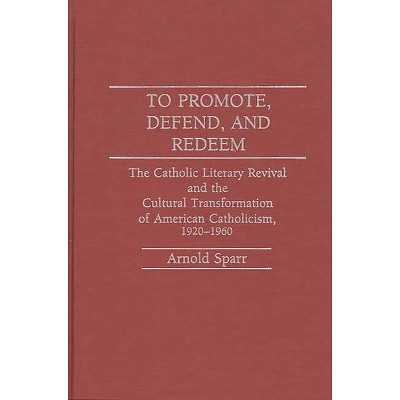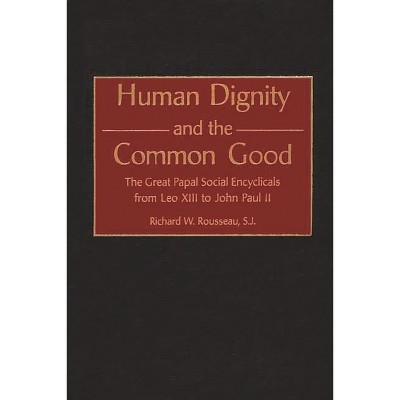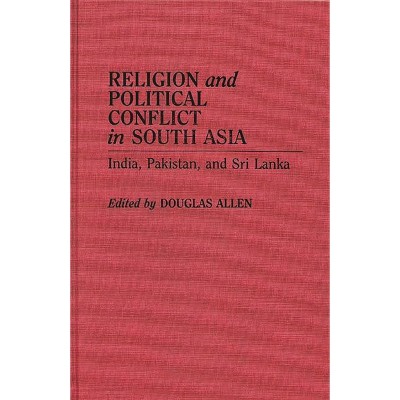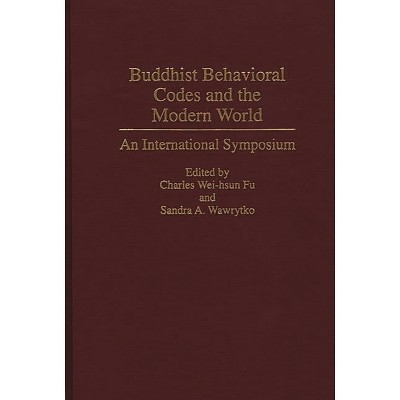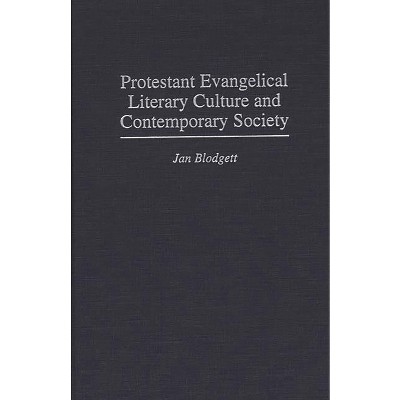Sponsored

Gods of Our Fathers - (Contributions to the Study of Religion) by Richard A Gabriel (Hardcover)
In Stock
Sponsored
About this item
Highlights
- Gabriel offers a startling new look at Judaism and Christianity by attempting to trace their historical theological roots, not to the revelations of God, but to the common theological ancestor, the religions of ancient Egypt.
- About the Author: RICHARD A. GABRIEL is an historian and Adjunct Professor of Humanities and Ethics at Daniel Webster College.
- 264 Pages
- Religion + Beliefs, History
- Series Name: Contributions to the Study of Religion
Description
About the Book
Gabriel offers a startling new look at Judaism and Christianity by attempting to trace their historical theological roots, not to the revelations of God, but to the common theological ancestor, the religions of ancient Egypt. Using new material only recently made available by archaeology, Gabriel shows how the theological premises of Christianity were in existence three thousand years before Christ and how the heresy of Akhenaten became the source for Moses' Judaism.
Gabriel begins with the challenge that the dawn of man's ethical conscience began in Egypt by 3400 BCE, long before the age of revelation in the West. Over the course of 3000 years, Egyptian theologians developed a complete theology of trinitarian monotheism, immortality of the soul, resurrection, and a post-mortem judgment within the Osiris myth. These concepts existed nowhere else in the ancient world and were passed directly to Christianity. In 1200 BCE, the heretic pharaoh Akhenaten abandoned Egyptian tradition and invented his own theology of a single god, no immortal soul, no resurrection, and no post-mortem judgment. This tradition was passed to the West through Moses whose Judaic theology is identical to Akhenaten's.
Book Synopsis
Gabriel offers a startling new look at Judaism and Christianity by attempting to trace their historical theological roots, not to the revelations of God, but to the common theological ancestor, the religions of ancient Egypt. Using new material only recently made available by archaeology, Gabriel shows how the theological premises of Christianity were in existence three thousand years before Christ and how the heresy of Akhenaten became the source for Moses' Judaism.
Gabriel begins with the challenge that the dawn of man's ethical conscience began in Egypt by 3400 BCE, long before the age of revelation in the West. Over the course of 3000 years, Egyptian theologians developed a complete theology of trinitarian monotheism, immortality of the soul, resurrection, and a post-mortem judgment within the Osiris myth. These concepts existed nowhere else in the ancient world and were passed directly to Christianity. In 1200 BCE, the heretic pharaoh Akhenaten abandoned Egyptian tradition and invented his own theology of a single god, no immortal soul, no resurrection, and no post-mortem judgment. This tradition was passed to the West through Moses whose Judaic theology is identical to Akhenaten's.Review Quotes
"Professor Gabriel's new book, Gods of Our Fathers, will engage and enrage Biblical maximalists and minimalists and everyone in between with his clearly written analysis of Egyptian influences upon Judaism and Christianity. The idea that both of these great religious faiths may have had their theological roots in Egyptian thinking is, to say the least, quite provocative and certain to engender much debate. As Nietzsche observed, what is needed is the courage to attack our convictions. Professor Gabriel's book does just that."-Dr. Stanley N. Rosenbaum Professor Emeritus Judaic Studies Program Dickinsen College
"There is great enjoyment in following the reasoning of an outstanding analytical mind offering solutions to complex matters. My colleague has written an intellectually challenging work that will stimulate the thinking of both historians and theologians. In this new book one finds the long overdue arguments that pays a debt of honor to the thoughts and ideas conceived of in the Nile valley long before Moses, the Exodus, and Christ. Professor Gabriel has plunged into the deep waters of controversial intellectual challenge in offering us this most erudite research into so controversial a subject. (from the Foreword)"-Professor Mordechai Gichon Professor Emeritus of Archaeology and Military History Tel Aviv University Fellow of the Society of Antiquities
About the Author
RICHARD A. GABRIEL is an historian and Adjunct Professor of Humanities and Ethics at Daniel Webster College. He is the author of more than 30 books, including From Sumer to Rome: The Military Capabilities of Ancient Armies, Great Battles of Antiquity, and Great Captains of Antiquity (Greenwood Press, 1991, 1994, and 2000 respectively). Dr. Gabriel was a professor at St. Anselm College for more than 20 years before assuming the position of Professor of History and Politics at the US Army War College. He is a frequent lecturer to the academic, governmental, and military establishments of Canada, the United States, Germany, China, and Israel.Shipping details
Return details
Trending Non-Fiction






